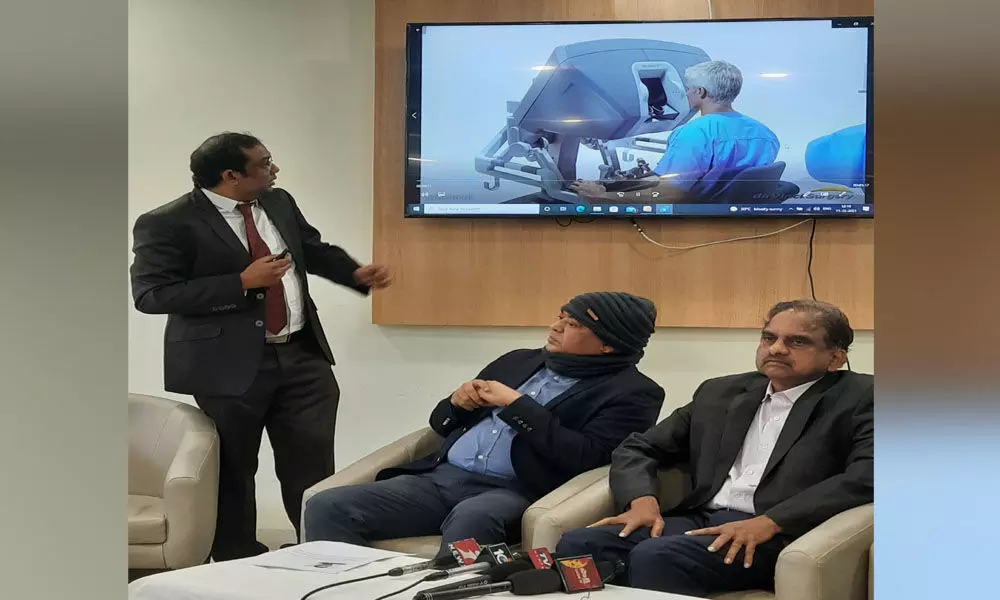Apollo to develop CoE in Vizag for robotic cancer surgery, research
Apollo Cancer Centre in Visakhapatnam will have a Centre of Excellence with robotic surgery and research in various areas in next few years after successfully launching advanced robotic surgery treatment for colorectal cancers-the first in Andhra Pradesh, in the city.
image for illustrative purpose

Apollo Cancer Centre in Visakhapatnam will have a Centre of Excellence with robotic surgery and research in various areas in next few years after successfully launching advanced robotic surgery treatment for colorectal cancers-the first in Andhra Pradesh, in the city.
Doctors at Apollo say the growing demand for western food, high protein food like red meat, genetic modifications and mutants is leading to high incidence of colorectal cancers. More precise, minimal intervention and scars and faster recovery is ensured with robotic surgery, say doctors.
Colorectal cancers are the seventh most common cancers in India. It is the second most commonly diagnosed cancer in women and third most common in men. As per recent data provided by Globocan India 2020, over 31,000 new cases have been registered last year with a high mortality rate.
Magnified view due to the 3D effect instead of 2D used in laparoscopic surgery ensures recovery with clinical precision, Dr. T. Narayana Rao, senior consultant-surgical gastroenterology and robotic surgeon at Apollo Cancer Centre-Vizag told Bizz Buzz on Saturday.
He said doctors use robotic arms for better and minute view of the affected portion and surgery, which is not that accurate in the open surgery due to certain limitations. For complex surgeries, use of robotics will be the future, he opined.
Apollo Cancer Centre, Visakhapatnam, brings the specialised team under the guidance of Dr. Venkatesh Munikrishnan, senior consultant-colorectal surgery, Apollo, Chennai, credited with highest robotic colorectal surgeries in India with Dr. Narayana Rao, retired chief surgeon of King George Hospital-Andhra Medical College and Dr. Karthik Chandra Vallam, consultant-surgical oncologist & robotic surgeon, Apollo Cancer Centre, Visakhapatnam.
During a presentation made before the media, Dr. Munikrishnan said "one of the most common forms of gastrointestinal malignancies across the world is colorectal cancer (CRC). The main problem is that it is generally identified only once the disease has progressed to the advanced stages. I have been performing surgery for rectal cancers for close to 25 years in all its iterations-open, laparoscopic and now robot-assisted. From a patient outcome perspective, robotic-assisted surgeries can result in faster recovery, shorter hospital stays, quicker return of bowel function and less blood loss."
Dr. Karthik Chandra Vallam said "as far as the treatment of colorectal cancer is concerned, it depends on a variety of factors. In the early stages of colorectal cancer, it might be possible for the surgeon to remove cancerous polyps through surgery. Robotic surgeries are ideal for procedures that require deep incisions. Robot-assisted surgery integrates advanced computer technology and provides the surgeon with a 10x magnified, high definition, 3D-image of the body's intricate anatomy."

